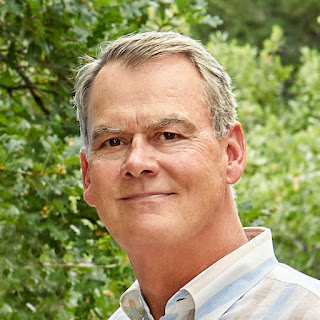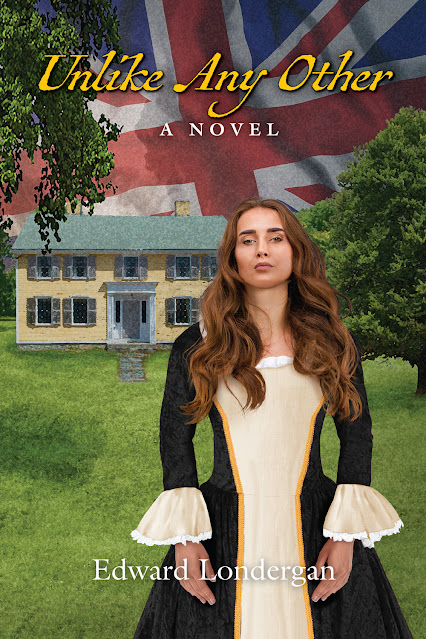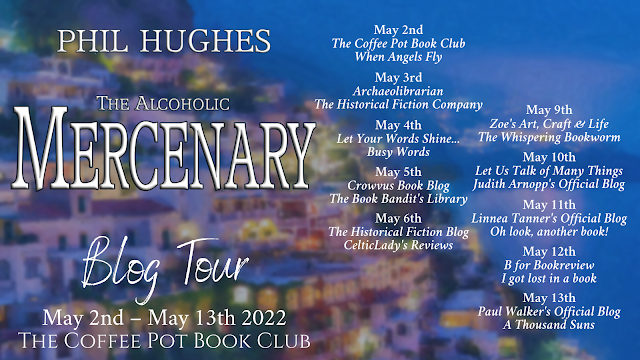And who do we have here?” Cooley asked.
“This is Ezra Ross, late of the Continental Army. He is visiting us on his way home from Saratoga,” Joshua said. Men from other tables looked up. Cooley looked at Ezra with a special interest.
“Fought in any of the other battles?” Cooley asked.
Ezra nodded before taking a sip of his rum.
Cooley and the other patrons waited for him to elaborate, but he didn’t continue.
“What battles were they?” I asked.
Ezra looked up at the two men as if just realizing they were there.
“I was at Bunker Hill, New York, Trenton, and Saratoga.”
A man sitting at the next table overheard him. “Did you say you were at Trenton?”
Ezra saw the man, an older sort, a pig farmer from the look and smell of him. Ezra nodded.
“What was it like?”
Other men had stopped talking and were listening to the conversation.
“It was cold,” Ezra said, staring at the table, moving his finger around in a circle. “Awfully cold.”
The men sat there waiting for him to continue, curious about his adventures.
“A snowstorm started on Christmas Day. We were on the other side of the river from Trenton waiting for orders.”
Cooley walked over from the bar after throwing a towel over his shoulder. All the men were now facing Ezra. Joshua sat there obviously fascinated by the tales such a young man might tell. As I looked at Ezra, I could only think about undressing him.
“About mid-afternoon, we started for the river. Our packs were heavy with three days of food and plenty of ammunition, sixty balls for each of us. It was dark and raining when we reached the river.” He drained his mug and looked around suddenly aware that there was no other sound except that of his voice.
Cooley took the mug and filled it. Ezra picked it up, took a sip, and wiped a hand across his forehead. “The river was high, the current was strong, and there was ice floating everywhere. I never thought we’d make it across alive.”
A small log in the fireplace popped and fell onto the hearth. A man kicked it back into the fireplace with his boot.
“I heard the weather was bad,” asked a man standing behind Ezra.
“It was horrible. Unlike anything you’ve ever seen. We made it to the river and had to wait for the others to get there, so we pulled down fence posts and started fires to warm ourselves. We couldn’t keep them going. It started snowing but turned to hail, then rain, then the temperature dropped. Everything froze quicklike before it started snowing again. The wind blew the whole time. The snow came down so hard you couldn’t see six feet in front of you. I remember everything was so quiet. There was no sound.” He sat up a bit in the chair and put his arms on the table, fingers on either side of the mug.
“Did you think you were going to die that night?” Cooley asked.
Ezra snorted. “Five or six times. I was walking so slow that I thought if I didn’t keep moving, I’d freeze to the ground.” He chuckled, but it was a sad sound. “We made it across a couple of hours before dawn and walked for miles before reaching the town. We ran across the field as fast as we could, racing the men next to us as much to stay warm as to be the first to reach the enemy.” He drained the rest of his mug and put it on the table. Cooley made no move to take it but waited like the rest to hear about the battle. “It was all over in less than an hour. Our guns were wet and frozen so they wouldn’t fire, but we fixed our bayonets and charged. The Hessians ran, we chased them, they surrendered, and while it was still snowing, we marched back to the river and crossed to the other side.” He held the empty mug up to Cooley.
Cooley grabbed it and hustled to the bar, filled it, and returned. “What happened then?” he asked, placing the mug on the table.
“I was so cold I didn’t sleep for another day and didn’t dry out for a week. That and sleeping out in all sorts of weather because we didn’t have tents, made me sick, and that’s why they paroled me in January.”
The room was quiet for a moment. Someone threw a couple of logs onto the fire. Drinks were refreshed and men packed and lit their pipes; the good smell of tobacco smoke drifted around the room.
“Saratoga was better,” Ezra said with a hollow laugh. “I helped General Arnold when he was injured. He fell off his horse right at my feet.” People were crowding around again listening carefully as Ezra continued his tale, looking at the table while running a finger around the rim of his mug.
“I’ll remember the day as long as I live. It was October 7th, and the dawn was crisp and clear. There was that sharp tang in the air when you know fall is here. Nothing much happened in the morning, but by mid-afternoon, they started firing at us. They were too far away so they didn’t hit us, just wasted their ammunition. I was with General Learned’s men, and we were in the center.
Both flanks started moving towards the Brits, and we had to stay there. We were all itching to fight. By that time, our blood was up, and we wanted to finish this.
“Finally, the order came for us to attack. We faced the grenadiers, who were about two hundred yards away.” He took a sip of his drink and looked at the men gathered around him. He turned to me and smiled.
“This officer came galloping at General Learned. He was going so fast I didn’t think he’d be able to stop; I thought he’d run right into the general. Then I realized it was General Arnold. His horse never stopped moving. It pranced around, ready to run. General Arnold raised his sword and yelled for us to attack. He turned and rode right toward the British line.
“We all ran behind him, but we couldn’t keep up. He ordered us to halt when we were about sixty yards away. Both sides aimed and shot at the same time.”
Someone coughed and a couple of chairs scraped the floor as people moved their seats around.
Cooley quietly filled mugs without being asked.
“I’d seen men die before but never like this,” Ezra continued. “Two men to my right, a man was shot in the eye, and the back of his head exploded, spraying blood and brains on my jacket. The soldier next to me on the left was shot in the chest and fell at my feet.” Ezra inhaled deeply and let it out. “I reloaded my musket while I saw big spouts of blood pouring out of him every time his heart beat. I thought I’d be killed too, then and there. The enemy fired again, and musket balls whistled through the air all around me, but none of them hit me.
“We followed General Arnold and overran their line and drove them back to two redoubts on either side. The general stopped right in front of me when his horse screamed and started tottering from side-to-side. It was shot in the leg. The general fell and the horse landed on his leg. He’d been shot in that leg too. He screamed as we pulled the horse off of him. I grabbed him by the arms while two others got his feet. I slipped and fell on a rock. I landed about two feet from the general’s face, as close as me to you,” he said to Joshua. “Even though he was shot, he looked right at me. ‘Never give up,’ he told me. We tied up his wound, made a litter, and got him back to headquarters.”
No one said a word. I’m sure many in the room were thinking the same as me; I found it hard to believe that someone as young as Ezra had been through so much. My heart went out to him. I put my hand on his arm and squeezed it. He gave me a wan smile. Patting his shoulder, I stood up and went to the door.
Joshua looked at me with a steady measuring gaze. He was everything Ezra wasn’t, and I despised him for it.



.png)
%20copy.png)



.png)




.png)



.png)

%20copy.png)



.png)




.png)


